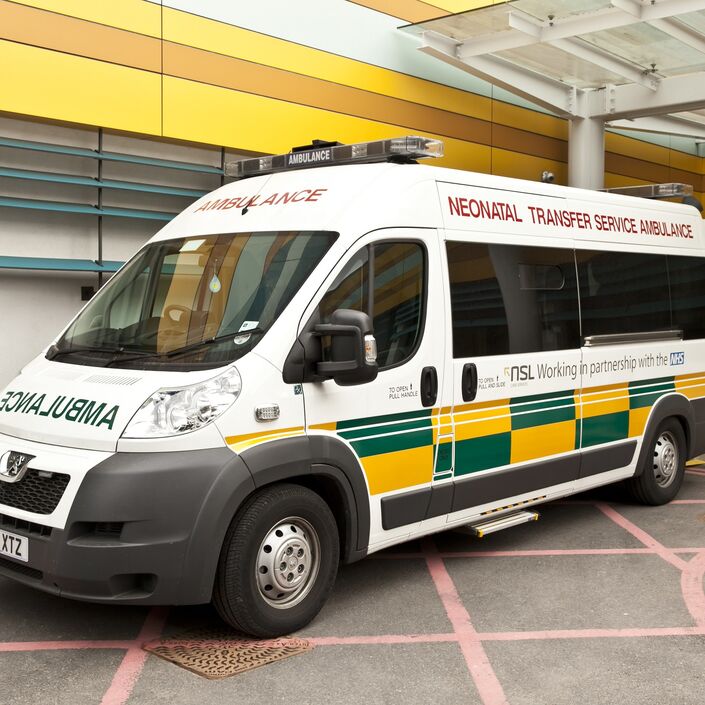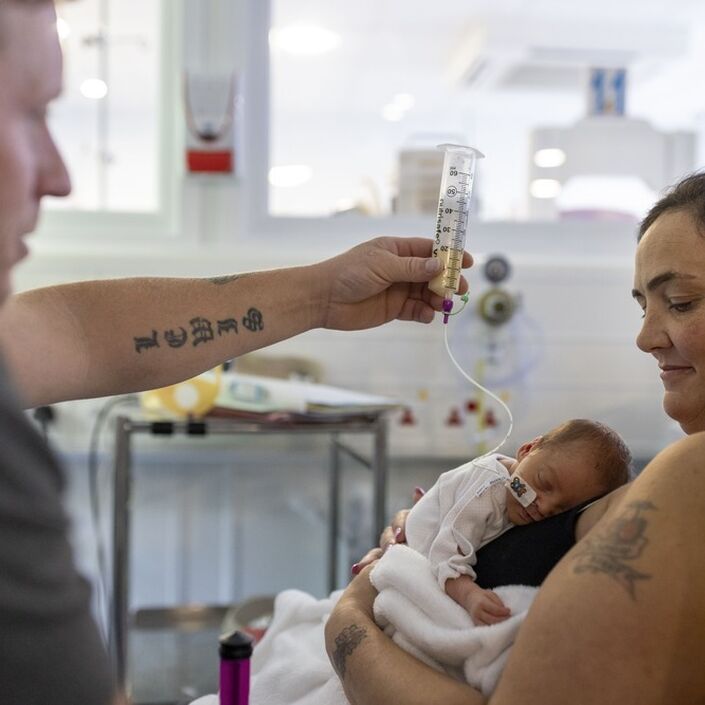Special care baby unit (SCBU, SCU or low dependency) - Level 1
This is for babies who do not need intensive care. Often, this will be for babies born after 32 weeks’ gestation.
Care can include:
- Monitoring their breathing or heart rate
- Giving them more oxygen
- Treating low body temperature
- Treating low blood sugar
- Helping them feed, sometimes by using a tube
- Helping babies who become unwell soon after birth
Sometimes, a baby might be admitted to a special care baby unit for phototherapy to treat jaundice. But sometimes, this condition is treated in transitional or postnatal care (see above).
Local neonatal unit (LNU) - Level 2
This is for babies who need a higher level of medical and nursing support. If your baby was, or will be, born between 27 and 31 weeks’ gestation, you may be transferred to an LNU.
Care on an LNU might include:
- Short-term intensive care (usually up to 48 hours)
- Short-term ventilation, continuous positive airway pressure (called CPAP) or high flow therapy, for breathing support
- Care during periods where their breathing pauses briefly, called ‘apnoea’ (pronounced ap-knee-ya)
- Feeding through a drip in their vein (called parenteral nutrition)
- Cooling treatment for babies who have had difficult births or are unwell soon after birth (before being transferred to a neonatal intensive care unit – see below)
- Helping babies who become unwell soon after birth
Neonatal intensive care unit (NICU) - Level 3
This is for babies with the highest need for support lasting more than 48 hours. Often these babies will have been born before 28 weeks’ gestation, or be very unwell after birth.
You might have been transferred to a different hospital which has a neonatal intensive care unit before your baby was born. This is usually because the staff feel your baby would benefit from this level of care, but that it is safer to transfer your baby before they are born.
Some of the reasons babies are cared for here are when they:
- Need help with their breathing (called ventilation)
- Need help with their heartbeat and blood pressure
- Have a moderate to severe condition affecting their breathing (called respiratory distress)
- Need longer-term feeding support through an intravenous (intra-venus) tube or general nutritional support
- Need or have just had surgery – including cooling treatment for brain injuries
At a neonatal intensive care unit, all levels of care may also be given to babies from the local area.
Our friends at the Cambridge University Hospitals Trust and Rosie Maternity and Neonatal Voices Partnership have made a video about NICU, especially aimed at big brothers and sisters that helps to explain what NICU is.
I'm confused by the different levels of neonatal care
It can be confusing to understand your baby’s level of care.
Sometimes babies might be treated in different types of units because their condition has changed. It might not be clear straight away what type of care your baby is getting.
For example, your baby could be in a neonatal intensive care unit, but getting special care. You can always ask the staff if you want more information about the level of care your baby is getting.
You might hear staff on the unit call the different levels of care by different names than we've used here. Have a look through our neonatal words for some other ways people talk about levels of care.





